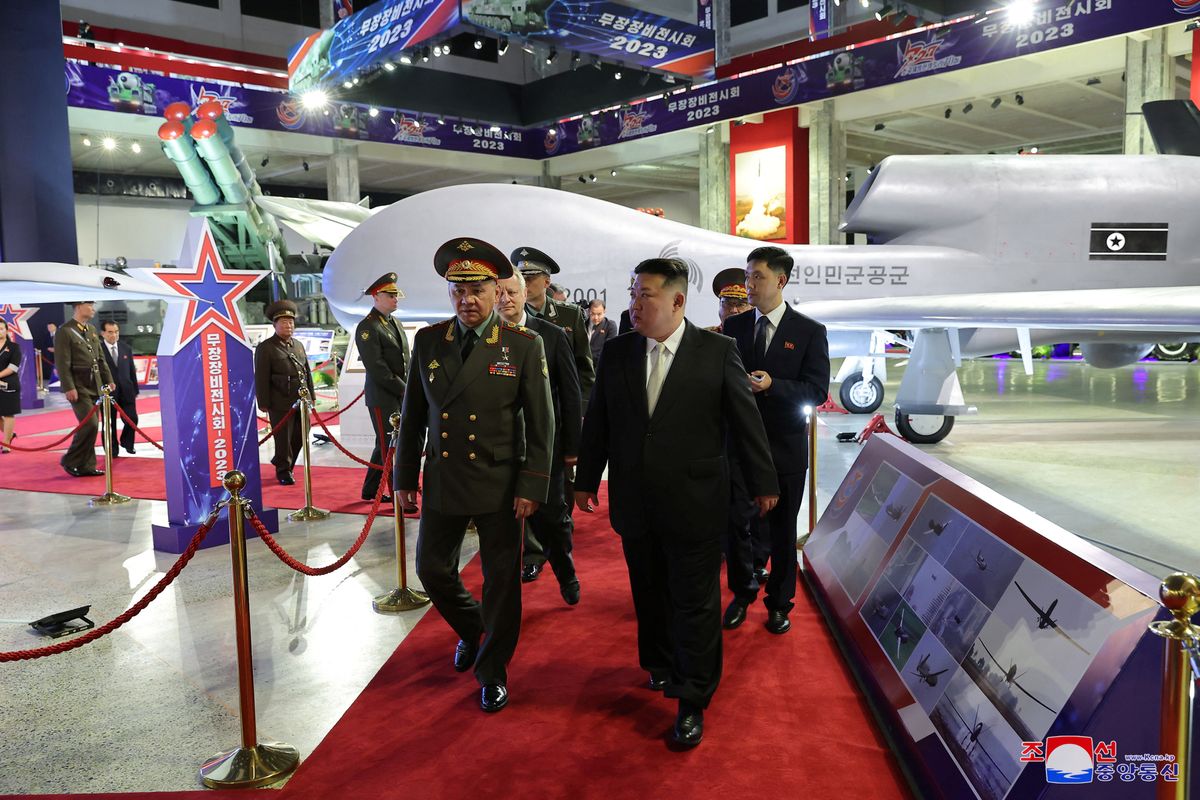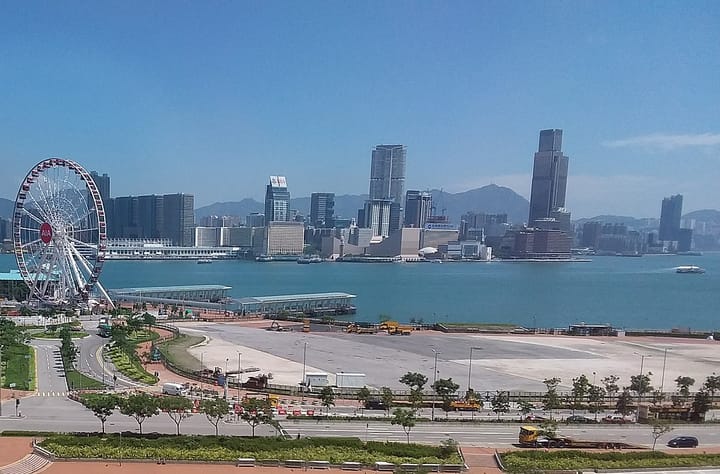China and Russia visit North Korea to celebrate the Korean Armistice anniversary
Known as the first real military fighting of the Cold War, The Korean War stopped on July 27, 1953, with the Korean Armistice Agreement.

A few minutes every morning is all you need.
Stay up to date on the world's Headlines and Human Stories. It's fun, it's factual, it's fluff-free.
The backstory: In 1948, North and South Korea separated into two sovereign states. Two years later, the northern Soviet-backed Democratic People’s Republic of Korea (DPRK) crossed into the southern pro-Western Republic of Korea, leading to brutal fighting. Known as the first real military fighting of the Cold War, it stopped on July 27, 1953, with the Korean Armistice Agreement. The US, China, North Korea and South Korea all agreed to the armistice, which also established the Demilitarized Zone (DMZ) and gave South Korea more territory. Although the armistice ended the fighting, it isn’t a peace treaty. So, technically, the war has never officially ended.
More recently: North Korea, which has largely isolated itself from the rest of the world, has complicated but mostly friendly relationships with China and Russia. Meanwhile, South Korea has maintained strong ties with the West and has built up its relationship with neighboring Japan, plus other Asian countries, like India. At the opening ceremony of the Winter Olympics in 2018, North and South Korea marched under the same “unified Korea” flag. But, even then, tensions were high between the two countries.
Since the beginning of 2022, tensions have risen even more, with North Korea increasing weapons tests (often flying missiles near South Korea and Japan) and South Korea hosting military exercises with the US and Japan. A major international concern right now is that North Korea could be building up its nuclear weapons arsenal.
The development: July 27 marks the 70-year anniversary of the Korean Armistice Agreement of 1953. North Korea is hosting a big celebration, inviting officials from both China and Russia to visit for the first time since the COVID pandemic. These guests include Russian Defense Minister Sergei Shoigu and Chinese Communist Party Politburo member Li Hongzhong. They’re expected to attend a big military parade of up to 15,000 personnel that’ll show off North Korea’s newest weapons. Analysts say it’ll probably showcase the North's nuclear-tipped missiles (which are banned by the UN). Meanwhile, in South Korea, President Yoon Suk Yeol has invited dozens of foreign war veterans to honor the fallen soldiers of the conflict.
Key comments:
"North Korea inviting delegations from both countries seems to be a case of history rhyming, whereby Pyongyang is gearing up to stand up against the West, but perceives the need to maintain relatively balanced ties with both China and Russia," said Anthony Rinna, a specialist in Korea-Russia relations at Sino-NK, a website that analyzes the region.
“For now, it’s premature to say whether or not North Korea further opens its borders in the future, but considering their measures to ease virus controls and signs that they are preparing to send athletes to international sporting events again, it’s possibly only a matter of time,” the South Korean ministry told The Associated Press.
"If North Korea also sends a high-level delegation to China for the upcoming Hangzhou Asian Games, it means the resumption of high-level 'shuttle diplomacy' between North Korea and China since the COVID-19 pandemic," said Yang Moo-jin, a professor at the University of North Korean Studies in Seoul.
“We believe the visit will be conducive to promoting the sound and stable development of (bilateral) relations, contributing to regional peace and stability, and creating conditions for a political settlement of the (Korean) peninsula issue,” Chinese Foreign Ministry spokesperson Mao Ning said on Tuesday.




Comments ()